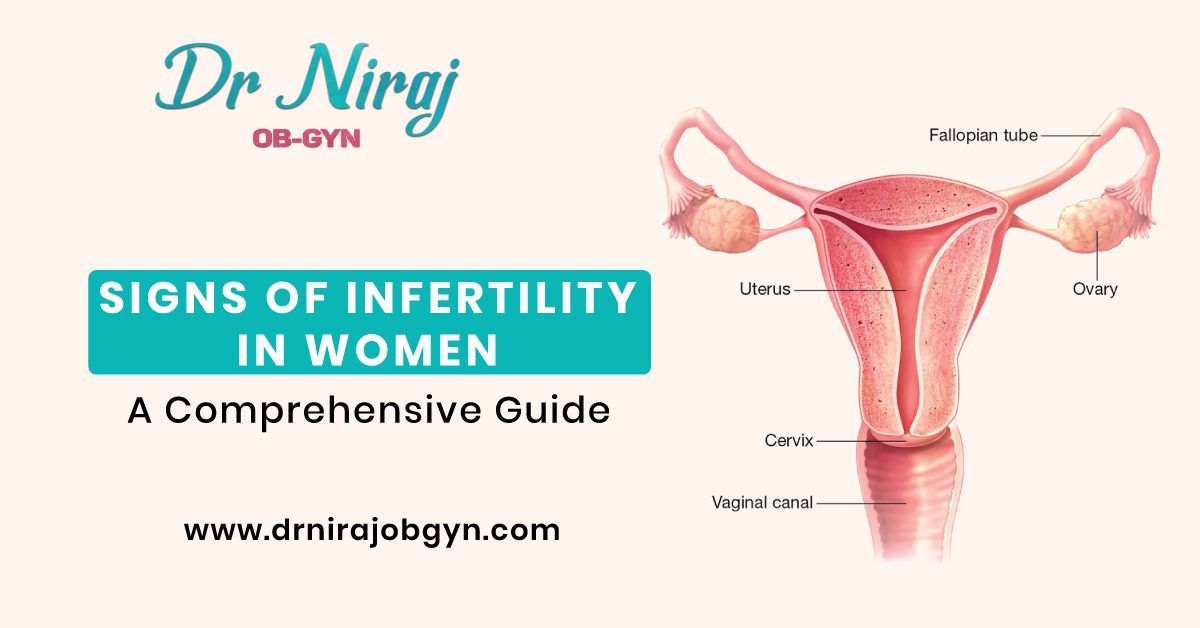
Signs of Infertility in Women: A Comprehensive Guide
Signs of Infertility in Women: Infertility is a common issue affecting millions of people worldwide, yet it remains a topic shrouded in confusion and stigma. Understanding the signs of infertility is crucial for early detection and seeking appropriate medical intervention.
This blog post delves into the various signs of infertility, shedding light on both male and female factors, to help individuals better understand their reproductive health.
What is Infertility?
Infertility is defined as the inability to conceive after one year of regular, unprotected intercourse. In all fairness, I feel if you have doubts about your fertility capabilities then having basic checks can be done. Infertility can result from issues in the male partner, the female partner, or a combination of both.
7 Signs of Infertility in Women
1. Irregular Menstrual Cycles
One of the most common signs of infertility in women is an irregular menstrual cycle. This can include cycles that are shorter than 21 days, longer than 35 days, or completely unpredictable. Irregular periods can indicate underlying issues such as polycystic ovary syndrome (PCOS) or hormonal imbalances, which can affect ovulation.
2. Absence of Menstrual Periods (Amenorrhea)
The absence of menstrual periods, known as amenorrhea, can signal a problem with ovulation. Amenorrhea can result from various factors, including stress, excessive exercise, low body weight, or hormonal imbalances. Without regular ovulation, conception is not possible.
3. Painful Periods (Dysmenorrhea)
Severe menstrual pain, known as dysmenorrhea, may indicate conditions like endometriosis or fibroids. These conditions can interfere with the ability to conceive by affecting the reproductive organs.
4. Unexplained Weight Changes
Significant and unexplained weight gain or loss can affect fertility. Conditions such as PCOS can lead to weight gain and irregular ovulation. On the other hand, being underweight can disrupt hormonal balance and halt ovulation altogether.
5. Hormonal Imbalances
Symptoms such as unexplained hair growth (hirsutism), severe acne, or changes in skin texture can indicate hormonal imbalances. Hormonal disorders, including thyroid issues or elevated prolactin levels, can impair fertility.
6. Pelvic Pain
Chronic pelvic pain, especially during intercourse, may be a sign of endometriosis or pelvic inflammatory disease (PID). Both conditions can cause scarring and blockages in the reproductive tract, hindering conception.
7. Previous Miscarriages
Recurrent miscarriages can be a sign of underlying fertility issues. Problems such as uterine abnormalities, chromosomal issues, or autoimmune disorders can lead to repeated pregnancy loss.
When to Seek Medical Help?
Recognizing the signs of infertility is the first step towards seeking help. If you notice any of the symptoms mentioned above, it’s important to consult a healthcare provider. Women under 35 should seek medical advice after one year of trying to conceive without success, while women over 35 should do so after six months.
Treatment Options
The treatment for infertility depends on the underlying cause:
- Medications: Hormonal treatments to regulate ovulation or improve sperm production.
- Surgery: To correct structural problems in reproductive organs.
- Assisted Reproductive Technologies (ART): Including intrauterine insemination (IUI) and in vitro fertilization (IVF).
- Lifestyle Changes: Improving diet, exercise, and reducing exposure to toxins.
Conclusion
Infertility is a challenging and often emotionally taxing condition, but understanding its signs can lead to early intervention and treatment. If you or your partner are experiencing any of the signs mentioned, don’t hesitate to seek medical advice. Advances in reproductive medicine offer hope and solutions to many couples facing infertility, helping them on their journey to parenthood.
Also Read
Symptoms Of Ovarian Cancer: Understanding the Signs and Seeking Early Detection

